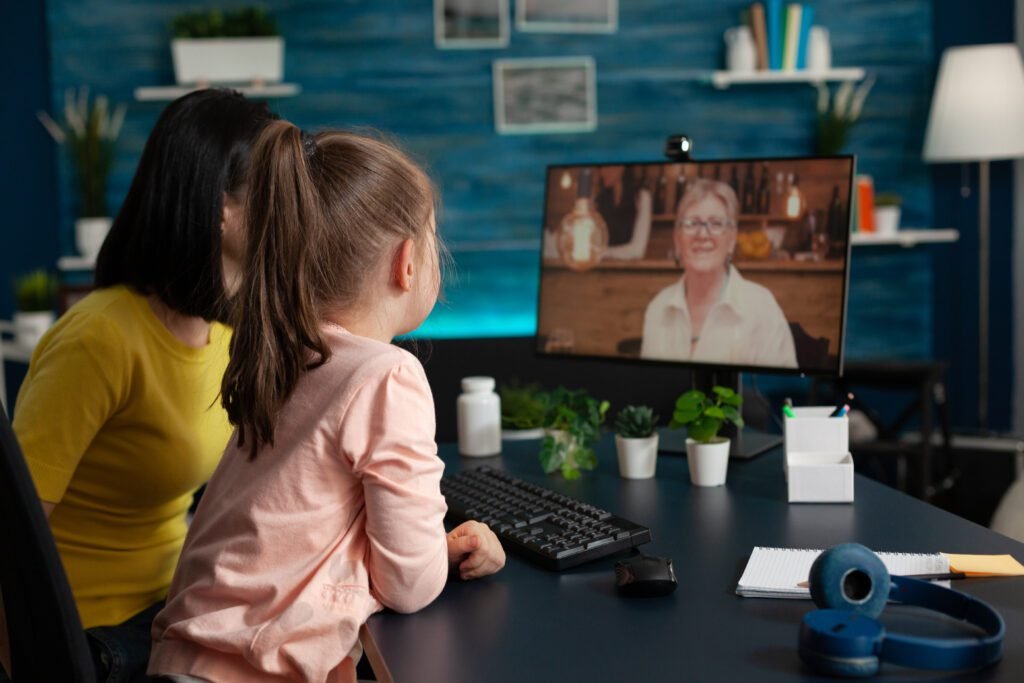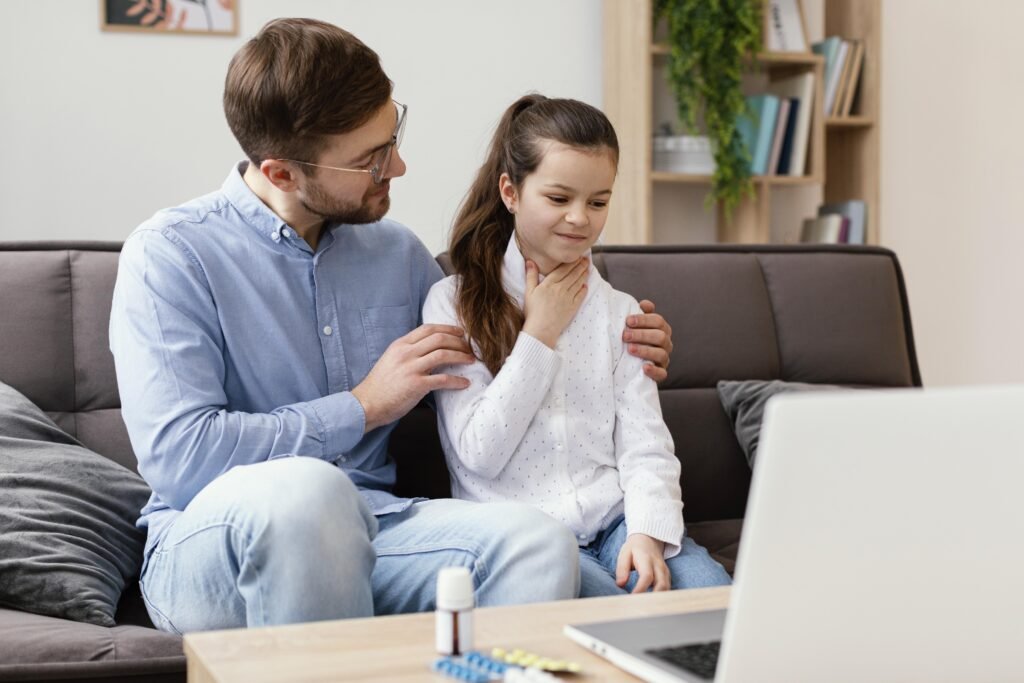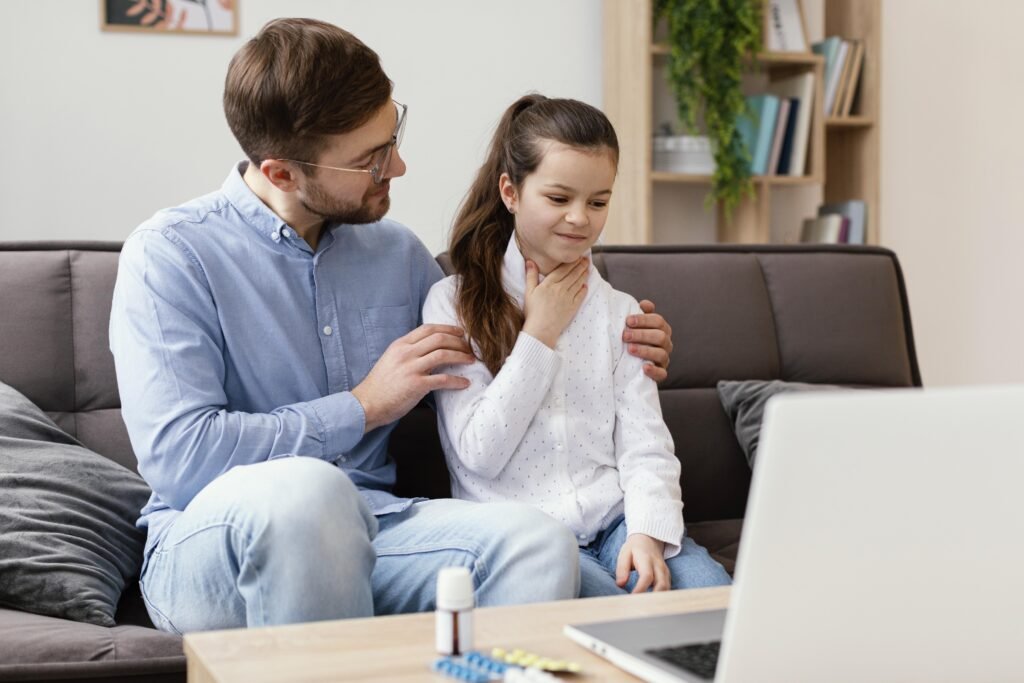Starting therapy can be a big step for both children and parents, especially when it’s happening virtually. At Amy Brown Counseling, we understand that preparing for your child’s first online virtual play therapy session might bring up a few questions. We’re here to help make the experience smooth, comforting, and supportive for everyone involved.
If your child is between the ages of 7 and 17 and living in Missouri, our virtual play therapy sessions can offer a nurturing space to help them express their feelings, build coping skills, and navigate life’s challenges from the comfort of home. Here’s what you can expect as you begin this journey with us.
A Brief Parent Intake Session Beforehand
Before your child’s first therapy session, we begin by scheduling a parent-only intake appointment. This gives you an opportunity to share your concerns, provide background information, and ask any questions you may have. It also helps your child’s therapist prepare in advance by gaining a better understanding of your child’s history, strengths, and needs.
The Virtual Setup
For virtual therapy, we use a secure and HIPAA-compliant platform that can be accessed on any computer, tablet, or smartphone with a camera and stable internet connection. The session link is sent ahead of time, and logging in is simple. Before the session, we recommend finding a quiet, private space where your child feels comfortable and won’t be easily interrupted.
Some families set up a dedicated therapy corner with pillows, art supplies, and a few fidget toys. Others simply use a laptop at the kitchen table or in the child’s bedroom. There’s no one-size-fits-all space—the most important thing is that your child feels safe and relaxed.
Building Comfort and Connection
The first session is all about connection. Your child’s therapist will focus on building rapport and making sure your child feels at ease in this new environment. This may involve:
- Asking light, friendly questions about hobbies or favorite things
- Offering choices to empower your child and build trust
- Introducing playful elements like drawing, storytelling, or games
- Creating a calm, non-judgmental atmosphere
There is no pressure for your child to open up immediately. Some children dive right in, while others take a few sessions to feel comfortable. That’s completely normal. The therapist is trained to follow your child’s lead and build a strong therapeutic relationship at a pace that feels right for them.
Items That Might Be Used
Depending on your child’s age and preferences, the therapist may invite them to use simple items during the session. Common materials include:
- Paper and crayons or markers
- A favorite stuffed animal or toy
- Fidget tools
- Books they enjoy
- A whiteboard or drawing app if using a tablet
These tools allow children to express their feelings in creative, nonverbal ways and can be especially helpful when words are hard to find.
Structure of the Session
Each play therapy session lasts about 45 minutes. While every session looks a bit different depending on the child’s needs, you can typically expect the following:
- A brief check-in to see how your child is feeling
- A playful or expressive activity led by your child or therapist
- Gentle prompts or reflection to help your child explore their thoughts
- A closing moment to wind down, say goodbye, and review any takeaways
The tone is warm, supportive, and child-centered. The goal is not to “fix” your child, but to give them space to express themselves, develop emotional insight, and feel supported through whatever they are facing.
What Parents Should Do During the Session
Unless otherwise discussed with your therapist, parents are not typically present during the child’s therapy time. However, it’s helpful for you to remain nearby in case support is needed. Here are a few suggestions:
- Let your child know you’re nearby if they need you
- Respect their privacy and avoid listening in by moving to a different part of the home
- Offer encouragement beforehand and ask afterward how they felt about the session (without pressuring for details)
- Be available in case the therapist needs to check in or assist with technical difficulties, especially for younger children
Older teens may be able to join their sessions independently from a private space on their phone or device, as long as it’s secure and confidential.
This balance of support and space helps your child take ownership of their therapy experience while still feeling secure.
After the Session
The therapist may schedule periodic parent check-ins (outside of your child’s regular therapy time) to discuss progress, share insights, and answer any questions. These check-ins are a great opportunity to work as a team in supporting your child at home and school.
You can also support your child’s growth between sessions by:
- Encouraging emotional expression
- Creating calm routines
- Reinforcing coping skills learned in therapy
- Modeling healthy communication
Common Concerns Parents Have
“What if my child doesn’t talk?”
That’s okay. Many children communicate through play, drawing, or storytelling. The therapist will meet your child where they are and gently help them open up in their own time.
“Will virtual therapy be as effective as in-person?”
For children ages 7 and up, virtual play therapy has proven to be a highly effective option. It allows children to engage from their familiar home environment, often making them feel more relaxed and empowered.
“How long will therapy take?”
The length of therapy depends on your child’s unique needs and goals. Some families see progress after a few months, while others benefit from longer-term support. Your therapist will keep you informed and involved along the way.
We’re Here to Support Your Family
Starting virtual play therapy can feel like a big step, but you don’t have to navigate it alone. At Amy Brown Counseling, we specialize in providing age-appropriate, trauma-informed care for children across Missouri, including Chesterfield and the greater St. Louis area.
Whether your child is dealing with anxiety, grief, school stress, divorce, or other life changes, we’re here to help them feel heard, supported, and empowered. Our therapists are highly trained in child development and use evidence-based practices to foster healing and resilience.
If you’re ready to schedule your child’s first virtual play therapy session, we invite you to fill out our new client inquiry form today. We look forward to walking alongside your family on the path to emotional wellness.



